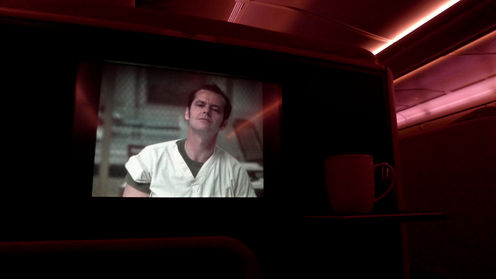
The insanity defense is often an option of last resort rather than a lenient alternative to imprisonment. Douglas LeMoine
By Meron Wondemaghen, University of New England
What comes to mind when you hear or read about the “insanity defense”? Are the mental images of people who fake insanity to “get away with murder”? Your ideas might have been formed by films such as One Flew Over the Cuckoo’s Nest (1975) or Judge Dredd (1995) or any number of episodes of crime procedurals such as Law and Order.
Contrary to popular belief and depictions in popular culture, the defense hardly offers lenient alternatives to imprisonment: it carries with it indefinite detention at secure psychiatric facilities and forensic patients may not be released even after their illness is managed for fear of potential dangerousness.
This is why it is almost exclusively raised in cases involving serious violence, such as murder. As Victorian judge Phillip Cummins recently pointed out, the defense is rarely employed and when it is, it is raised in only 1% of felony cases.
How does it work and when is it successful?
In order to find a defendant guilty of a crime, the prosecution must prove the act was committed voluntarily (physical element) and intentionally (mental element). If one of these elements is not satisfied beyond reasonable doubt, the accused is fully acquitted.
Outside this framework, the law can exculpate people with mentally illness if they meet one of the criteria set out in the insanity defense.
These are:
a) He or she did not know the consequences of the act
b) He or she did not know the act was wrong
c) He or she could not control the act
The second prong of the defense tends to be more commonly used than the other two: that the defendant could not distinguish right from wrong. So under which circumstances may the defense be established?
Though a specific diagnosis is not required, in practice the defense is problematic for defendants who suffer from non-psychotic mental illnesses like depression. It is successful if defendants had a psychotic mental disorder.
A 2003 report by the Victorian Law Reform Commission shows that all of the cases in which the defense was successful involved offenders who had been psychotic at the time of the crime.
Diagnostic label matters
It is difficult to decide whether depression can impair one’s appreciation of the wrongness of an act such that it mitigates culpability. This can be due to a number of factors.
Psychiatric opinions on this matter are conflicting. If there is no consensus amongst expert witnesses in relation to whether depression can cause legal insanity, jury members may feel that definitive conclusions about this link cannot be made.
Further, the public’s familiarity with depression may influence courts' and juries' willingness to accept it as a sufficient basis for excusing culpability. Depression is perceived to be experienced by “anyone” and psychosocially induced rather than biologically.
It is seen as an aspect of the human condition. As such, sufferers are perceived to be well able to discern right from wrong and control their conduct.Such perceptions and trivializations may affect the way juries reach their verdict.
On the other hand, psychotic disorders characterized by delusions and hallucinations impair perceptions of reality and, as such, seem to be accepted as also impairing the ability to distinguish right from wrong.
In 2010, I interviewed Victoria’s Chief Crown Prosecutor Gavin Silbert and three defense lawyers about when the defense is employed successfully. Their views explain why depression may not qualify. Silbert observed:
I’m not sure depression does qualify really because… you’ve got ordinary people sitting on a jury… and they’ve got a familiarity with depression. I mean psychosis and schizophrenia are a little bit more difficult to come to terms with unless they’ve had some involvement with it. You need a major psychosis.
A lawyer noted:
The usual ones would be paranoia, schizophrenia, dissociation.
Defense counsel Patrick Tehan commented:
There are particular psychiatric conditions which more readily lead to the conclusion the person is [legally insane]… the most obvious one is psychosis. Where the evidence is strong in relation to psychosis, that will readily lead to a [successful] defense. One of the difficult barriers is that of depression … [it] is not readily perceived as amounting to a mental illness sufficient to lead to a successful defense of [insanity].
Silbert added:
A clearly diagnosed psychosis such as schizophrenia would clearly qualify.
The reality of the defense
It is important to understand this defense is often an option of last resort rather than a lenient alternative to imprisonment. Depending on the case, a fixed term in prison may be in the offender’s best interest with the prospect of being released, rather than indefinite detention under the findings of the defense.
When it is raised in high profile cases such as Donna Fitchett or Arthur Freeman, media narratives of outrage and sentiments of suspicion within the public follow because of the potential of “fabricating” insanity.
But the defense is very restrictive in who can employ it successfully and carries with it indefinite detention. Importantly, the legislative aim in utilizing this defense is so that people who suffer from mental disorders and are legally insane can receive treatment.![]()
Meron Wondemaghen, Lecturer in Criminology at University of New England, does not work for, consult to, own shares in or receive funding from any company or organization that would benefit from this article, and has no relevant affiliations.
This article was originally published on The Conversation. Read the original article.





Comments